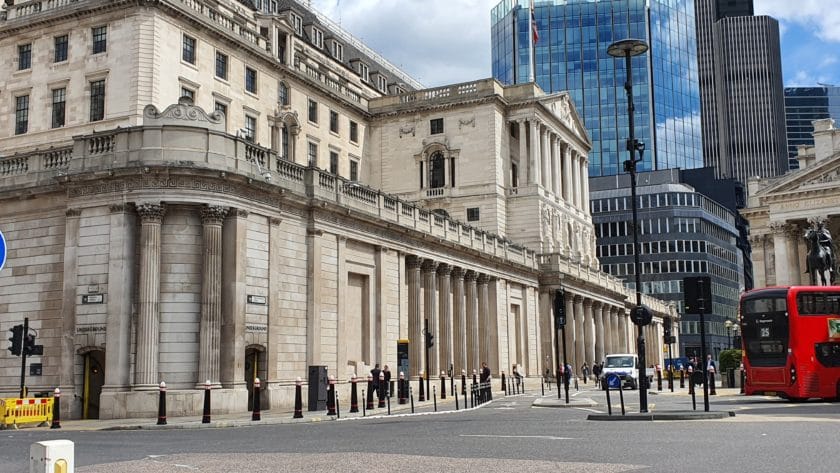The Bank of England has held interest rates at 5.25% for the fifth month in a row as it battles to curb inflation.
The central bank’s Monetary Policy Committee voted by a majority of 8-1 to maintain its current rate. One member voted to cut the rate to 5%.
The Bank’s decision to hold rates steady came despite inflation dropping back more sharply than forecast and growing speculation that it may act to reduce rates earlier than expected.
Explaining its decision, the MPC said that despite headline inflation continuing to fall, key indicators of inflation persistence remain elevated. It said monetary policy will need to “remain restrictive” for sufficiently long to return inflation to the 2% target sustainably in the medium term in line with the MPC’s remit.
Susannah Streeter, head of money and markets at Hargreaves Lansdown, said: “The majority vote to keep rates on hold has hardly come as a surprise given the MPC’s past reticence towards cutting interest rates. The Bank of England has adopted the same stance as the Fed yesterday and the ECB last week, indicating that inflation is following the right path, but it’s still wary about the potential for prices to bubble up again.”
However, the central bank could face growing pressure to cut rates, particularly in the wake of Switzerland’s surprise move to reduce rates, making it the first major central bank to adjust its tighter monetary policy.
Rachel Winter, partner at Killik & Co. said: “The central bank once again keeps its finger firmly placed on the pause button. Yet, optimism is the overriding feeling amongst investors who will be further buoyed by inflation easing. The much-awaited cut to the base rate is now firmly in sight with many industry commentators expecting the Bank of England to start cutting borrowing costs in the summer.”
Streeter agreed that Switzerland’s announcement could be the start of a series of interest rate cuts across the summer but said more data will need to float past UK policymakers first.
She commented: “Continued stubbornness in wage growth could tip a decision by the Bank of England towards August instead, when a fuller monetary policy report is published. Markets are now pricing in a bigger likelihood that August will be the date the Bank of England finally makes a move. But when cuts come, they will be gradual, unless of course there is a sudden rush of stronger-than-expected disinflationary forces and policymakers are then forced to play catch up.”
Laith Khalaf, head of investment analysis at AJ Bell, said: “It seems pretty clear the Bank is deciding when, not if, it should cut interest rates. Latest forecasts from the OBR suggest that inflation will hit target in the next few months, and if it does, the central bank will come under tremendous pressure to reduce rates.
“The residents of Downing Street will be hoping for rate cuts sooner rather than later. Lower borrowing costs could also potentially open up some wiggle room in the public finances, so if the central bank surprises markets by cutting rates aggressively, the government might be tempted to hold another fiscal event ahead of the election to spend the extra pennies on more sweeteners. So far though, the Bank isn’t making especially dovish noises which would suggest it’s going to shock markets by loosening faster than expected. However, the two hawks who had been agitating for an interest rate hike have now re-joined the herd and are happy with keeping rates on hold.”
Khalaf said that although inflation is falling, it continues to remain well above the Bank of England’s 2% target. The labour market also looks tight and wages are seeing real growth, which will add to domestic inflationary concerns.
“The Bank won’t want to cut rates, only to have to hike them again. It will therefore want to have a high degree of certainty that it’s got inflation licked before taking action. For the time being that means a plateau in rates until some conclusive data shifts the arithmetic,” Khalaf added.






























